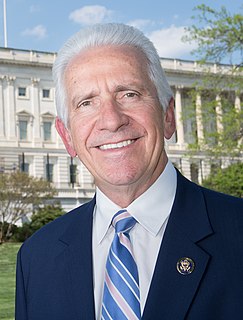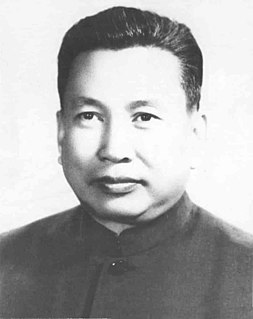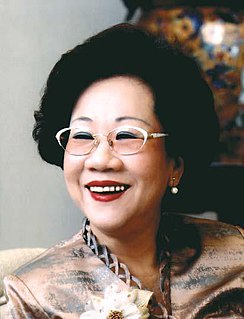A Quote by Jim Costa
In view of Chinas growing military strength and intentions, the best way to safeguard Asias permanent peace and prosperity is to have all Asian countries join forces with other democratic countries in the world to form a global community of democracies.
Related Quotes
But it is the best thing that we have for bringing the countries of Europe around the same table and for forging compromises so that people here can live in peace, freedom and prosperity. In a world which is growing closer together all the time, we can only survive and influence the rules if we join forces. We will miss the presence of the United Kingdom at this table.
Starting from the ruins of the Second World War, we - all Europeans said, after centuries of fighting each other, we're going to build permanent arrangements in which peace between European countries is secured, freedom is secured, and growing prosperity. And that's what we have done over the last 70 years.
When you look at the global situation, if America learned to be one of the many countries in the world and to find its way to cooperate with people and bring a global peace that could bring great prosperity to this globe, there is still a chance of that, and that's a big lesson from history. We are not paying attention to that.
A considerable proportion of the developed world's prosperity rests on paying the lowest possible prices for the poor countries' primary products and on exporting high-cost capital and finished goods to those countries. Continuation of this kind of prosperity requires continuation of the relative gap between developed and underdeveloped countries - it means keeping poor people poor. Increasingly, the impoverished masses are understanding that the prosperity of the developed countries and of the privileged minorities in their own countries is founded on their poverty.
I want people to understand that, look, we're in a period of democratic deficit, democratic recession. There are fewer democracies in the world today than in 2005, and in many of the countries that are still technically democracies, we're seeing a reduction in the rule of law. And that's especially true in Central Europe, but it's also true of places like South Africa, the Philippines.
China's accumulation of reserves is a result of the IMF's mismanagement of the Asian financial crisis a decade or so ago. If countries know they can't rely on the IMF to help them, their best defense is their own reserve cushion. In a time of spreading global recession, too much emphasis on savings in surplus countries like China can impede prospects for global growth.

































